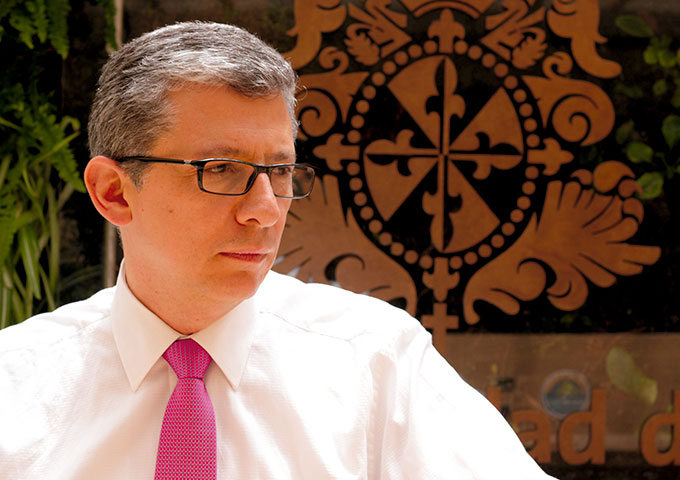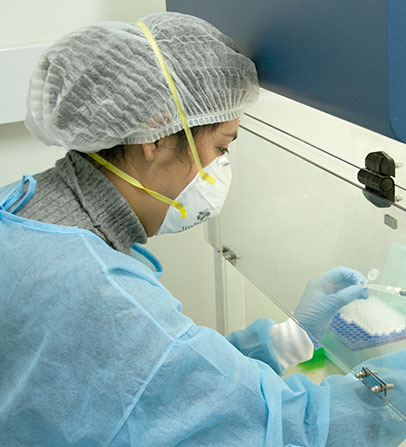Universidad del Rosario, at the service of the country
By: Ángela Constanza Jerez
Photos:
Society and Culture

By: Ángela Constanza Jerez
Photos:
It was a fact. The oldest restaurant in Bogotá was closing forever. La Puerta Falsa had endured the attacks of a country that was disrupted by the terror regime of Pablo Morillo, the April 9 riots, a fire in its facilities, the impact of the takeover of the Palace of Justice, and even citizens protests in the past year. However, the effects of the pandemic were more than it could resist after 204 years of history. The owners announced the dismissal of the 14 employees and its definitive closure.
“We helped La Puerta Falsa with the reinvention process and launched the Ideatón UR X La Puerta Falsa campaign. The Center UR Steam of the School of Business Administration and the Center of businessmen, together with the owners, developed a set of strategies to strengthen it, which will be duplicated by the rest of the actors in the restaurant sector in Colombia. We have the support of a group of businessman, professors, and graduates, who found out about this help in the morning, and in the afternoon, they expressed their interest in collaborating. Our strength is not our buildings but rather the 366 years and the community this represents”, says Alejandro Cheyne García, president of the Universidad del Rosario, when talking about one of the good news that the institution has given to Colombia during this pandemic. Currently, La Puerta Falsa operates digitally and continues its process.
In October, Cheyne will have been elected president in the university for two years. He has lived under, just like the restaurant, difficult and special circumstances throughout his life.“Earthquakes, natural disasters, economic, political, and social conflicts; also the dialogs for peace, in which we were protagonists; and now, we have the challenges imposed by COVID-19. When looking at the university from a perspective of history, one can realize that the institution has been present in everything, and this is due to its main purpose: First, to build life projects, and second, to serve the country,”, he assures.
According to the president, when the first cases of infection were detected in Latin America, in Bogotá, and in other regions of the country, the decision was to be prepared in record time for what was to come. All the classes were conducted virtually, which meant a huge workload that was achieved thanks to the commitment of professors and administrative staff. ““Every megaproject requires a pilot test, but in this opportunity, that was not possible. For many professors and students, this was the first time they were conducting virtual classes. Therefore, I insist on highlighting that it was a technological and financial challenge but above all pedagogical,”, he mentions.
The titanic task is reflected in the figures. In the first week, the university developed 15,000 classes for 160,000 participants in Bogotá and 10 other cities of Colombia; it trained 7,000 users and sent computers to different regions of the country for community members who needed them.
The efficient and immediate response from the institution was influenced by the fact that in the last years, 66,000 million Colombian pesos have been invested in technology. It is moreover a fact that professors and collaborators have been available to address the different needs that arose in an unprecedented moment for the world.
“For example, we have had to take care of the emotions that this generated in all the community, for which the Deanship of Students and the Center of Emotional Education (Emotion UR) have provided support with psychological follow-up, sports classes, and workshops, among many other psycho-pedagogical strategies. In this manner, we have been able to guarantee the university experience because students attend not only to acquire knowledge but to receive an experience from the Universidad del Rosario”, he adds.
For the president, it is clear that the second primary purpose of the university, serving the country, has been obvious in the answers that the educational institution has provided to the multiple challenges imposed by the pandemic. One of those answers has been to work with, and for, the regions because their capacities to cope with different fronts in this context are not enough.
The Universidad del Rosario, from the beginning of the pandemic until now, has been developing 17 research and extension projects, not just to react in the middle of this challenge but also to build on what would be the reactivation of Colombia in the next months. These projects include monitoring instruments, information gathering, predictive models, public policy studies, and direct intervention in the pandemic’s framework, such as the study of convalescent plasma, the respirator prototype, and the technical services of processing COVID-19 diagnostic tests.
“When the alliance with the Instituto Nacional de Salud (National Institute of Health) was established for the COVID-19 diagnostic tests, we focused on the regions because unfortunately they do not have the logistic capacity to do them. Furthermore, different university faculties are working with them in a project that seeks to reactivate the economy and society”,explains the president.
The Universidad del Rosario has as a principle to build strategic agendas with the regions. In this sense, it does not provide them opinions or advice; it rather goes to each territory to understand their problems and build together the work agenda. The methodology is linked to the regionalization project, one of the pillars of the Ruta 2025 (Route 2025) outlined by the university.
““Again, there is a relation to the university's history. From its establishment, families have sent their children to study at Rosario because they are certain that we can build a life project. Today, 30 percent of our students each semester come from the regions. Great leaders from different areas of the country have emerged from our classrooms,”, he states with pride.
Precisely that number pertaining to students has been one of the reasons that have taken the university to reflect about the ‘new pedagogy’, as defined by the president, of ‘the new normality’.Students from outside Bogotá, as well as their parents, expressed their concern to return to the capital this semester because the city has the highest number of OVID-19-infected people. Moreover, students who live in Bogotá were afraid of attending in-person classes because of their own health condition or that of one of their relatives.
“The message is conclusive. We are in a gradual and responsible return to in-person attendance, and to get there, we have to go through a transition period, which will be a mixed model. It is not about alternating between remote and in-person access to the class. It is about merging two scenarios, two spaces: In-person class and remote access,”, explains Cheyne. In addition, he insists that the university will have all the flexibility, it will fit into the circumstances of the students so that they take their classes virtually even if they have the possibility of attending the in-person class. “Those students from practical programs and subjects will be more prevalent in in-person attendance. To achieve this flexibility and offer new spaces, we have created the PlayBok – Body of Knowledge, a system of experiences for students that summarizes the set of initiatives we have developed for the second academic period classes, where innovation and transformation are the common elements.”.
“All this requires some additional investments in different senses. For example, one in technology and the other in the pedagogical model, where it will be greater. We will have student training sessions on developing digital skills and those for professors on rethinking virtual classes. What was done before was to solve the emergency, but what will come in this second semester is a much more advanced version of the convergence between in-person and remote classes.We will also make great investments to guarantee the university experience, which is fundament”, he assures. In all those changes, the university is aware that its biggest challenge is pedagogy, since its purpose for developing the five dimensions of students skills (knowledge, experiences, attitudes, aptitudes, and values) in a virtual manner requires huge demands, for which he will not spare any effort.
Aside from the reflection about the‘new pedagogy’ and the way of providing students with a university life experience while attending remote education, the Universidad del Rosario and its president have reflected on the lessons that the first pandemic period has taught them. In those thoughts, once again the direct connection with 366 years of history arrives.
““In these three centuries, we have been protagonists, and this context could not have been different. We are not talking about crisis, we are talking about the challenge that gathers people to contribute with their talents to overcome it, and this is thanks to our principle Nova et Vetera [in Latin: The new and the old], which is no more than the convergence of tradition with innovation. Our students and graduates have a thinking capacity that allows them to think outside the box and innovate”, he points out.
Therefore, for the president, the first lesson that the first semester of 2020 left us with is that thinking of crises or challenges makes a huge difference when facing the situations. The second thing that is fundamental for him is that people from the Universidad del Rosario have a very strong and rooted concept of community.
“And it is not irrelevant —he assures—. We have more than 13,000 students, over 1,000 professors, more than 1,000 collaborators, and more than 55,000 graduates, who have been our greatest strength to overcome this crisis. When we thought about helping with diagnostic tests, we achieved donations for 6,000 million Colombian pesos from businessmen and graduates who trust us. When we reported about the COVID-19 strategic project follow-up, we were asked to collaborate. And all this happened because our community is sure about the fact that service to the country in our university is not an alternative, it is the only way. Fray Cristóbal de Torres, with his great vision, founded our university to serve society”.

The Universidad del Rosario,from the beginning of the of the pandemic until now, is leading 17 research and extension projects not just to react to this challenge but also to build on what would be the reactivation of Colombia in the next months. These projects include monitoring instruments,information gathering, predictive models, public policy studies, and direct intervention in the pandemic’s framework.